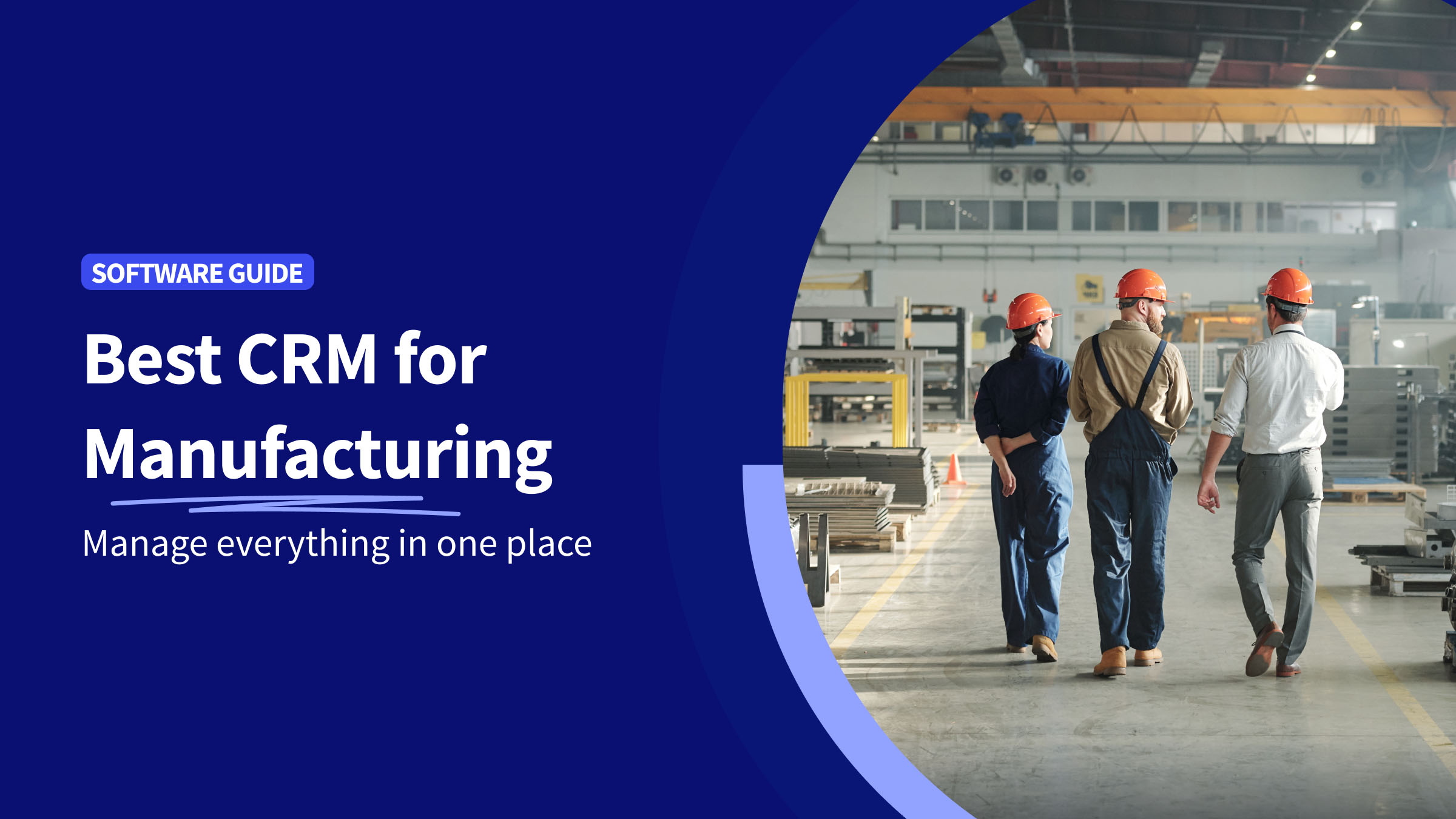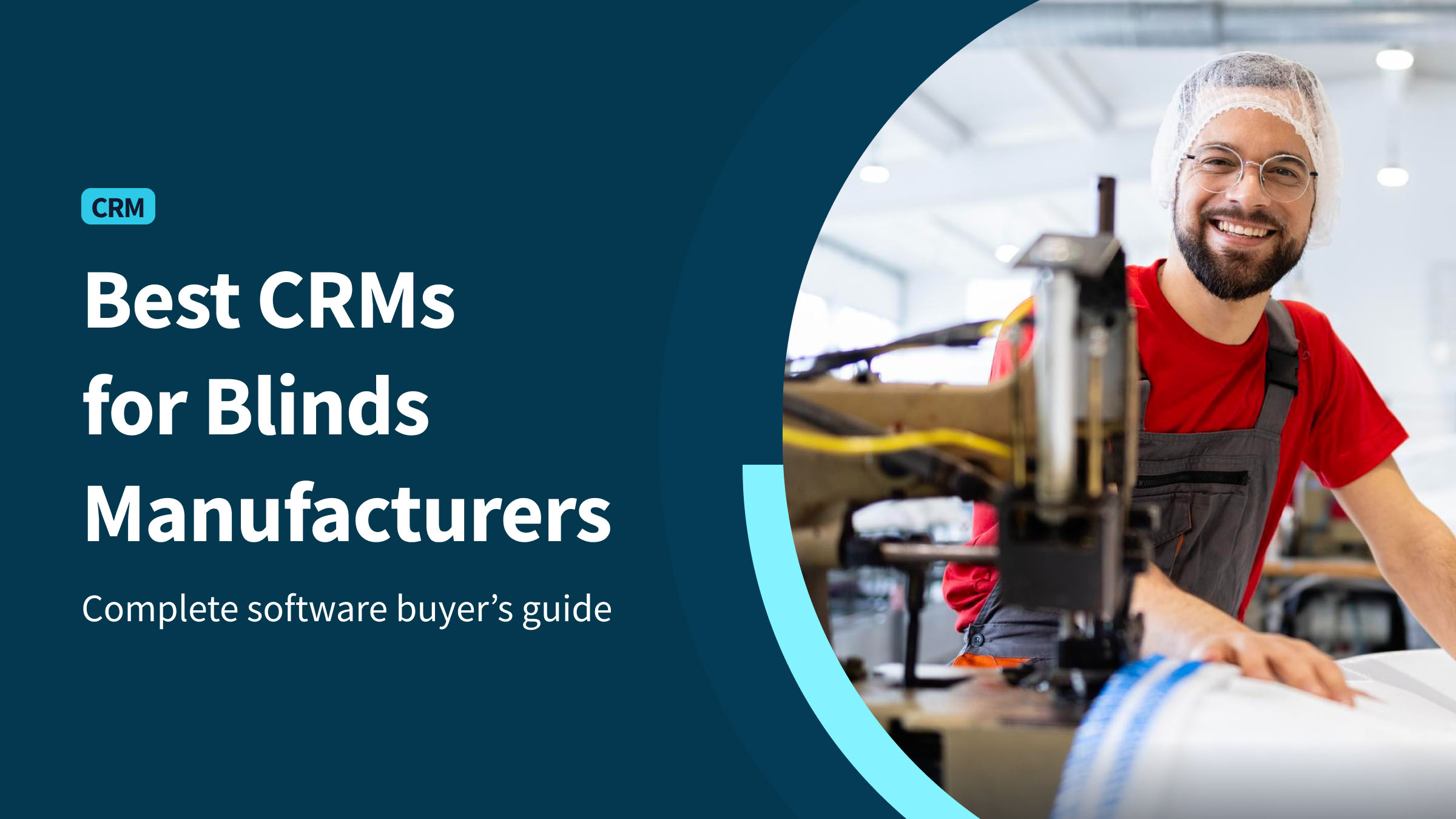An ERP for supply chain management (SCM) is critical for businesses of all sizes. It’s responsible for ensuring that goods and materials are delivered to the right place at the right time.
This article will explore the importance of ERP for supply chain management and why it’s essential.
What is ERP in supply chain management?
ERP stands for enterprise resource planning.
It is software designed to manage workflows and streamline business processes. This is done by automating a wide range of tasks and providing a central hub for all data relevant to:
- Inventory and purchasing.
- Production and order processing.
- Customer relations and sales.
- Finances and accounting.
The role of ERP in supply chain management
Supply chains are complex networks of processes and teams. Their central goal is to turn raw materials into a finished product that is ready for consumption.
As such, supply chains take up a large chunk of your operational cost. On top of this, supply chain disruption makes a huge dent in customer satisfaction ratings and leads to millions of dollars lost.
With the help of ERP solutions, businesses can make sure they always meet customer demands in face of market fluctuations and changes to consumer behaviors.
In short, an ERP for supply chain management makes your operations more efficient and resilient – resulting in cost savings in the process.
How exactly do ERPs aid supply chain management? You can go deep into the advantages and disadvantages of ERPs but for a quick overview see below.
Inventory management
Inventory management is a crucial aspect of running efficient supply chains. This is especially true for custom manufacturing businesses where raw materials are not procured consistently.
An ERP for supply chain strengthens your operations by providing businesses with a holistic inventory tracking system.
This automatically records the movement of all materials and goods as they go through the entire process of production. With a bird’s eye view of your inventory levels, you can keep a lean inventory and avoid wasting:
- Time.
- Effort.
- Materials.
Procurement
ERP systems automate a range of tasks related to procurement processes, such as:
- Converting purchase requests into POs.
- Managing contracts and vendor relationships.
- Auditing.
Most ERP solutions are also customizable, so that businesses can add specific fields in their requests and track every single material and good as it passes through the system.
Finally, as an ERP for supply chain is designed to integrate all departments, your purchasing team gets access to real-time information on other departments, such as engineering or sales.
This allows the procurement arm of your business to anticipate needs both within and outside of their department.
Tracking production and shipping
Modern problems require modern solutions. The COVID-19 pandemic highlighted the immense importance of efficient logistics management — particularly, as more people turned to online to buy goods.
With an ERP system, you don’t have to worry about tracking shipping, sending invoices, and securing documentation for cross-border shipments.
Instead, an ERP for supply chain management automates all your tasks and shows real-time data in a dashboard. In turn, you can easily predict delivery times and keep your customers in the loop.
Quality management
Having a 360-degree view of your business helps you with quality control.
With total inventory visibility and access to employee and customer interactions, you can instantly nip issues in the bud to make sure that the rest of your supply chain doesn’t suffer.
What features should you look for in an SCM ERP?
A comprehensive SCM system should include the following features.
Task automation
One of the key functions of ERP systems is automation.
By reducing the number of tasks that need to be done manually, ERPs save employees countless hours and allow them more time to focus on more productive tasks.
Most ERPs are also equipped with artificial intelligence and machine learning tools that take all of your data and generate actionable insights on your production process, sales strategies, and more.
This speeds up the decision-making process and gives you a firm competitive advantage in the market.
Tools to minimize production bottlenecks
With production scheduling, distribution planning, and demand planning capabilities, an ERP for supply chain reduces resource conflicts and production bottlenecks.
With these capabilities, you create a more agile supply chain that can cope with the challenges that today’s instability poses.
Functions to boost communication and collaboration
An efficient supply chain manager integrates all your departments into one system but also connects your suppliers and vendors to your system. This boosts coordination and communication all around.
Customer relationship management and customer service systems
If you want to keep your customers happy, you’ll need to stay on top of your game.
You have to be able to anticipate issues, give timely responses to inquiries, and address concerns as quickly as possible.
All of this is made easier with an ERP system that allows you to pull up all your customer data and interactions in just a few clicks.
Accounting and finance features
The accounting and finance module is one of the most important components of an ERP system.
This module helps organizations keep track of their financial performance and automate invoices, cost estimates, receipts, and more.
In addition, the accounting and finance module provides insights into organizational performance that can be used to improve operations.
Why should you use supply chain ERP software?
You need to embrace digital transformation if you want to keep up with the changes happening to the manufacturing industry.
With looming threats to supply chains exacerbated by the COVID-19 pandemic, economic instability, and other global forces, it’s important to have a system that efficiently manages your supply chain processes.
ERP software is essential for managing a supply chain efficiently.
By understanding the role of an ERP system in supply chain management and what features to look for, you can find the right software for your business. Using supply chain ERP systems:
- Improves communication and collaboration among team members.
- Optimize stock levels and inventory management.
- Reduce costs.
Method’s solution to supply chain management
Are you ready to take your supply chain operations to the next level?
There are many wholesale software suppliers out there that provide small manufacturing ERPs.
But if you’re looking for something with strong customer relationship management capabilities and real-time sync with QuickBooks or Xero, Method CRM is tough to beat.
Unlike traditional on-premise ERPs, it’s accessible from most devices, including your mobile phone.
That way, you can access customer data and production schedules, send invoices and cost estimates, and do so much more – whenever and wherever you want.
This powerful automation tool offers functionality that exceeds a traditional CRM but is more agile than enterprise ERP solutions. It is best for small and mid-sized businesses who have QuickBooks and Xero at the core of their operations.
Method is beneficial to many industries, but those in manufacturing, wholesale, distribution, and contracting get the most value from it.
To boost efficiency and automate your workflows, consider integrating with Method CRM. See how Method helped a shipping container company’s revenue double in just three years below.
ERP for supply chain management FAQs
How do manufacturing businesses benefit from ERPs?
ERPs supply many benefits to manufacturing businesses, including:
- Real-time visibility of all important processes, tasks, teams, and data.
- Task automation to reduce reliance on time-consuming and error-laden manual processes.
- Customer relationship management that allows businesses to provide faster and more customized customer service.
- Accounting and financial management tools with forecasting capabilities.
How does ERP improve supply chain management?
ERP systems improve supply chain management by automating and organizing the flow of information between suppliers, manufacturers, distributors, and retailers. This allows for a more efficient and streamlined process that can save time and money
What are some essential ERP modules?
The most popular ERP modules include accounting, inventory management, and accounting. However, there are many other ERP modules available, each with its unique benefits.
For example, some ERP modules can improve customer service or streamline HR processes. Ultimately, the best ERP solution for a business will depend on its specific needs and goals.
See how Method can automate your manufacturing workflows.
Image credit: Tom Fisk via Pexels






